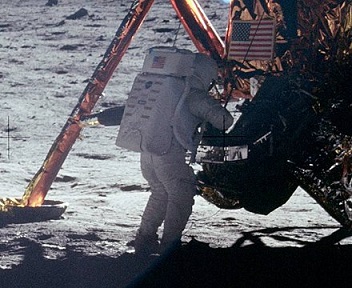
Courtesy of wikipedia.com
I’m a prisoner of Covid-19. Are you a prisoner, too? Oregon, my home state, is doing a miserable job of keeping the number of viral infections down. Maybe your state is the same. In any case, for the past few months, we Oregonians have been required to wear masks in public and encouraged to stay home as much as possible. Today, a small group of residents at my retirement center staged a modest rebellion. They dragged lawn chairs into the parking lot for some robust conversation–still careful to wear masks and observe a safe distance between them. They caught my eye as I walked past, but I didn’t join them. Having picked up my mail, I was headed for my computer to knock out another blog. This one, in fact.
I’m not as stir crazy as some around me. My mom worked two jobs during most of my childhood, so, having no siblings, I learned enjoy my own company. As an adult, I can tolerate long periods of isolation and even crave it. What the pandemic has done for me is provide plenty of time to read and think and write.
Despite my solitary tendencies, most of my working life, I’ve been surrounded by people–as an educator, the head of a teacher’s union and as a politician. I enjoyed each of these experiences, but in my political life, I relied heavily upon my staff. Luckily, I managed to hire the best, people with more talent, skills and knowledge than I possessed. Don’t mistake this last remark for modesty. Rather, I credit myself with enough intelligence to hire individuals whose talents extended my reach. They did so admirably which meant each time they took their vacations I was disconsolate.
With so many people working at home, I’ve wondered if isolation has affected their productivity. How does a manager manage with no one around? An article in the Harvard Business Review noted the center of this new arrangement requires trust. (“Office Life,” by Sharon Parker, The Week, August 14, 2020, pg. 33. ) Supervisors who doubted their ability to manage remotely tended to micromanage. That constant hovering left workers feeling their productivity was in question. Insecurity affected their motivation which, in turn, dragged down productivity. In sum, the supervisor’s fear of lost efficiency become a reality.
At-home workers face other consequences, as well, according to the Harvard report. Being out of sight can mean being out of mind where promotions are concerned. Sharon Parker, who summarized the findings noted that “creativity, innovation and serendipity” flourish when people share ideas and have an opportunity to showcase their own.
No man is an island, the poet John Donne once wrote. A plein air artist may imagine he or she requires only brushes, canvass, paint and a far horizon. Yet the theories that guide the hand are spawned in the taverns, the coffee houses or in the schools, anyplace where the friction of ideas can catch fire.
Today, when I passed my fellow retirees in the parking lot, though they are no longer artists or teachers or business professionals, they clung to the belief that weathering a storm together was better that struggling alone. I admit, I was tempted to join them. Yet even in my brief passing, I had time to note how they’d circled their chairs for mutual protection like pioneers in a wagon train. For one hour, as least, they’d planned to take a stand against the isolation Covid-19 had imposed. People need people. Neil Armstrong may have left his footprints on the far away moon, but he didn’t get there by himself.
